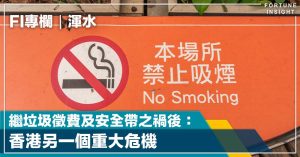前終審法院首席法官國能今日在《明報》及《南華早報》撰文評論《國安法》,認為《國安法》草案至今仍未公布,實屬不幸。
他在文章中稱行政長官不宜直接委任法官,本應由法庭決定,強調應跟從首席法官或司法人員推薦委員會的建議去任命法官,行政部門不宜干預。
他在文中提到,某些特定案件由於內地行駛管轄權,這些案件的被告將不能享有香港司法獨立程序的保障,將損害《基本法》框架下香港的司法獨立。
以下為英文原文:
It is unfortunate that the draft law has not yet been published. But it is significant to note that the explanation of the Legislative Affairs Commission of the National People’s Congress Standing Committee has stated that the legal principles of our system would be followed, including the presumption of innocence. There is no suggestion that the law would be retrospective.
I would wish to comment on two matters affecting the judiciary. First, it was stated that the chief executive would have the power to select judges who would deal with national security cases. This would be detrimental to the independence of the judiciary.
Under the Basic Law, judges are appointed by the chief executive on the recommendation of an independent commission, that is, the Judicial Officers Recommendation Commission. Judges are chosen on the basis of their professional qualities and they exercise their judicial power independently, free from any interference.
The judiciary is independent from the executive authorities. The independent judiciary should decide on the judges who would hear these cases without any interference from the executive authorities.
Further, the chief executive would not have the required knowledge of the experience and expertise of judges to make the selection on his or her own. Also, the chief executive’s chairmanship of the National Security Commission to be established in Hong Kong would make it inappropriate for him or her to make the choice on his or her own.
If this view is not acceptable, then the arrangement should at least provide that the chief executive’s selection of these judges must be based on the recommendation of the chief justice or that of the Judicial Officers Recommendation Commission. This would ensure that the choice will be made on a professional and independent basis.
Secondly, the explanation stated that under specific circumstances, the central authorities may exercise jurisdiction over a small number of criminal cases that jeopardise national security. This also raises serious concern.
When exercised, these cases will be dealt with and tried in mainland China. The defendant will not enjoy the safeguards of our judicial process. Although it is said that this jurisdiction could only be exercised in the most exceptional circumstances, it would undermine the independent judicial power which our courts are authorised to exercise under the Basic Law.
Text By FORTUNE INSIGHT









